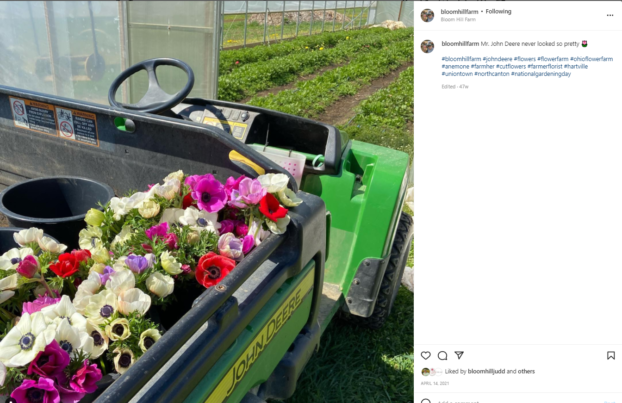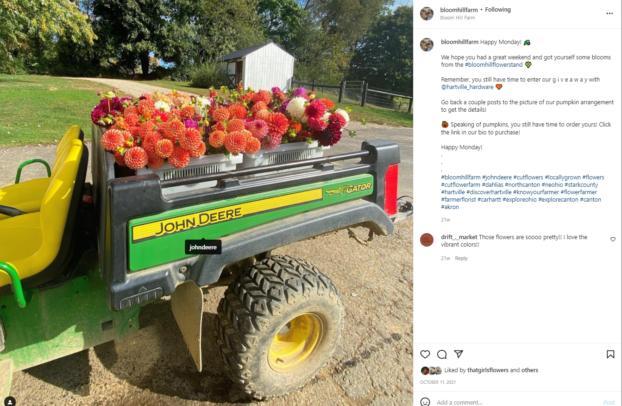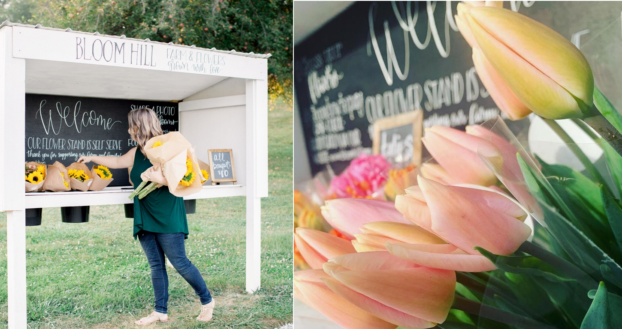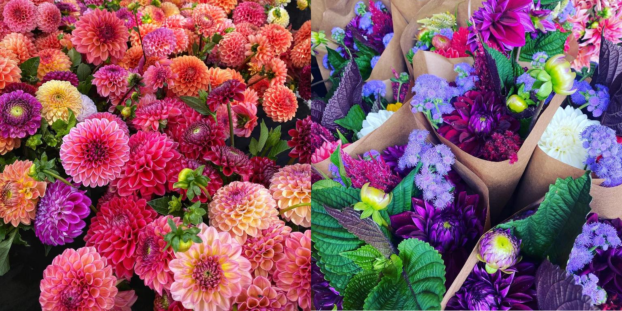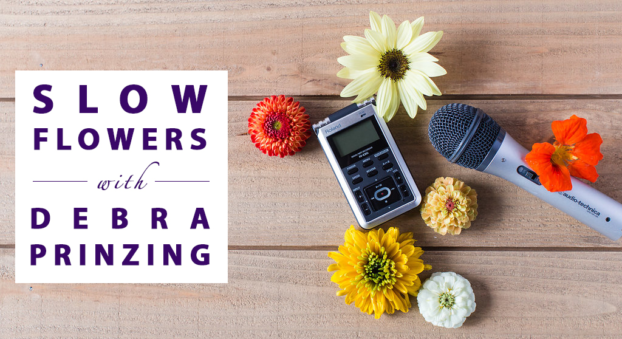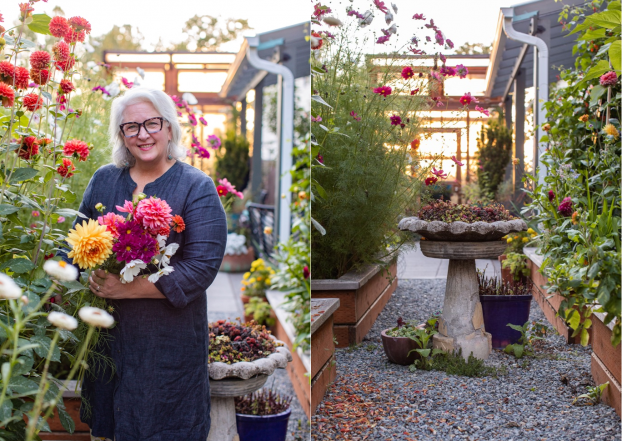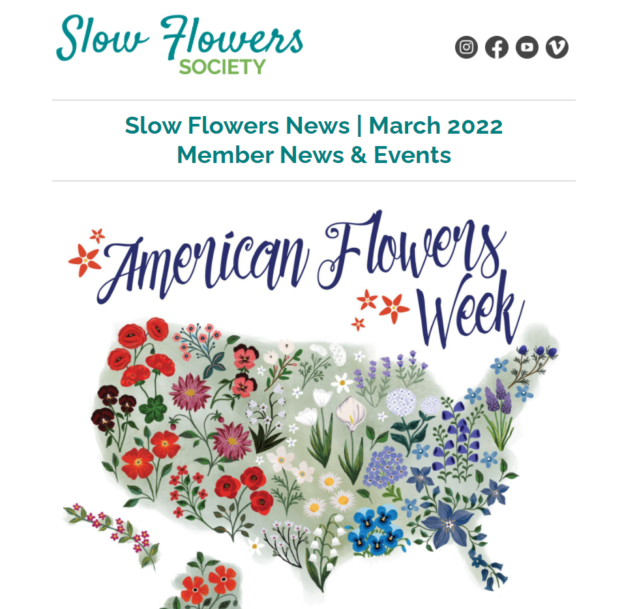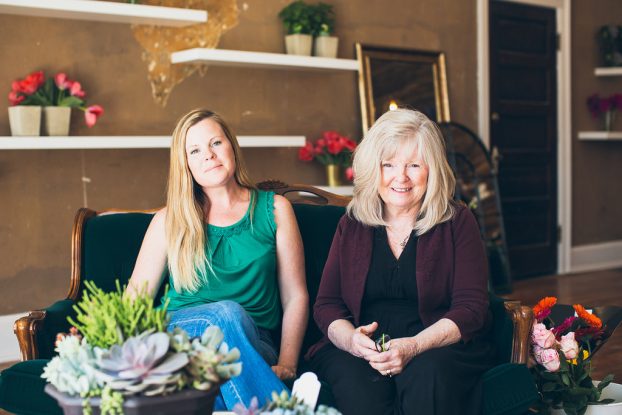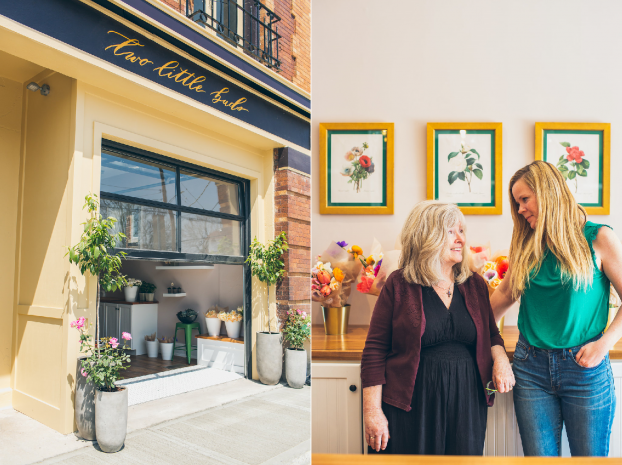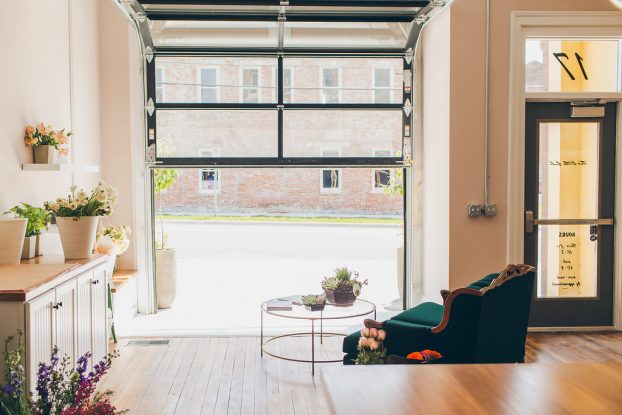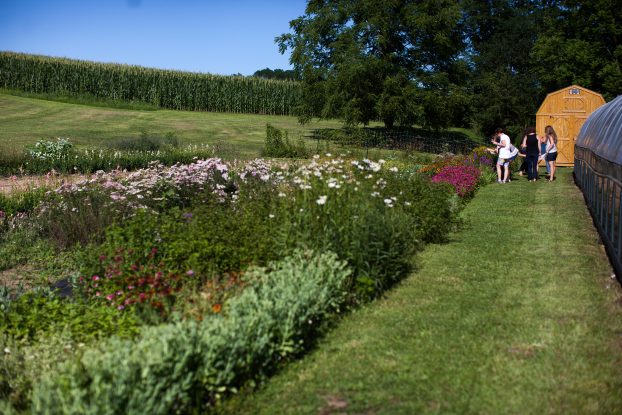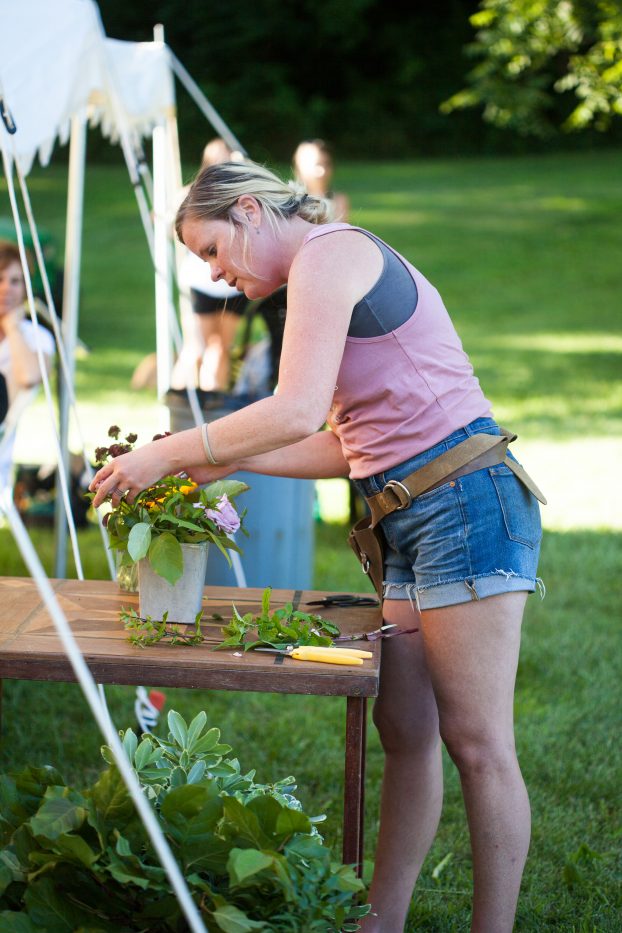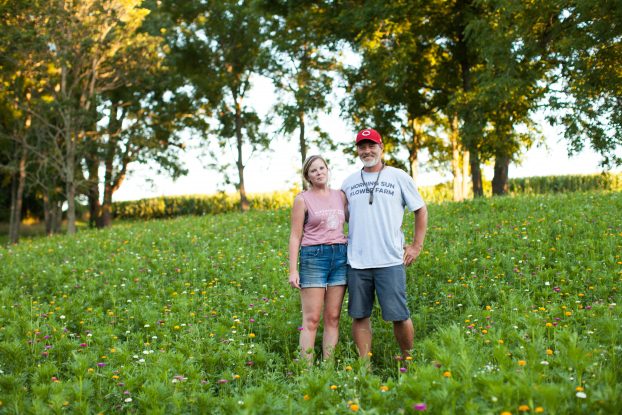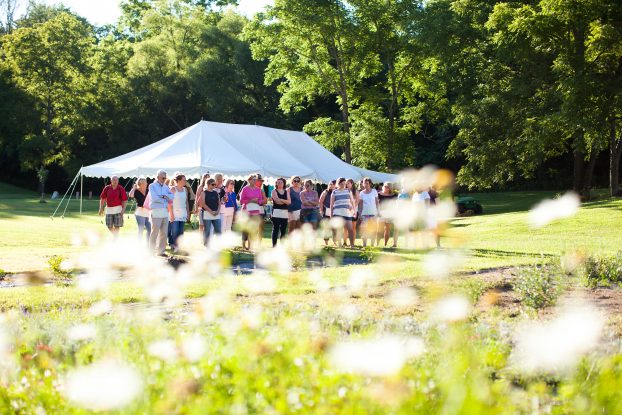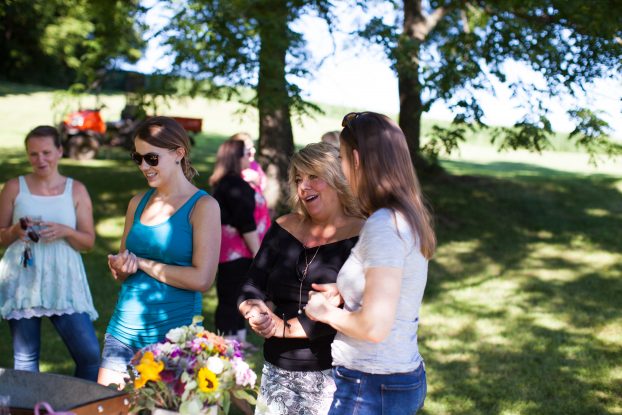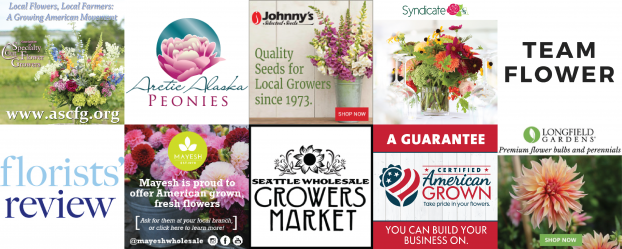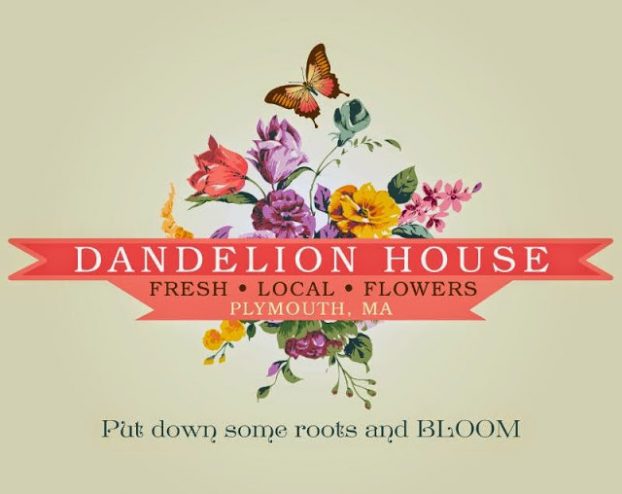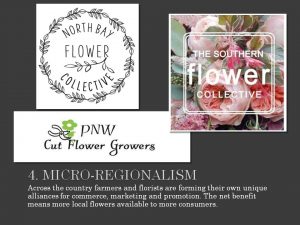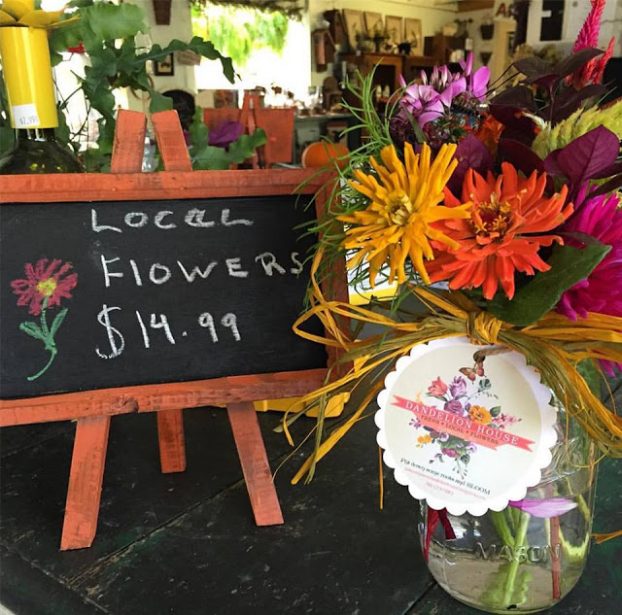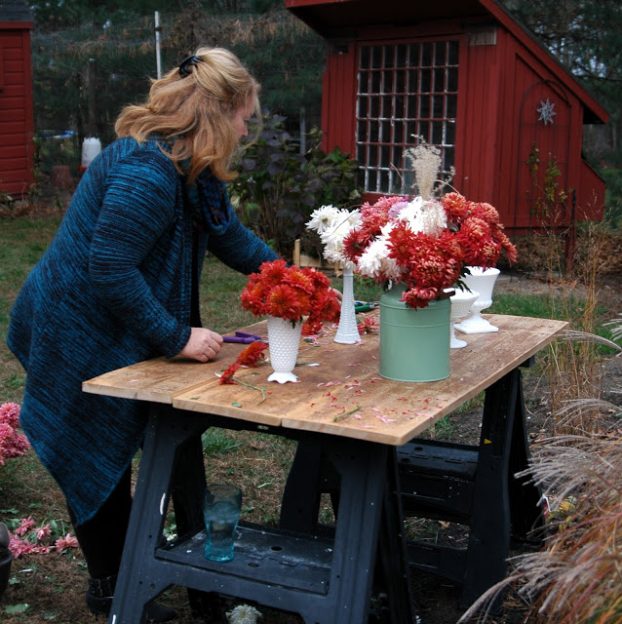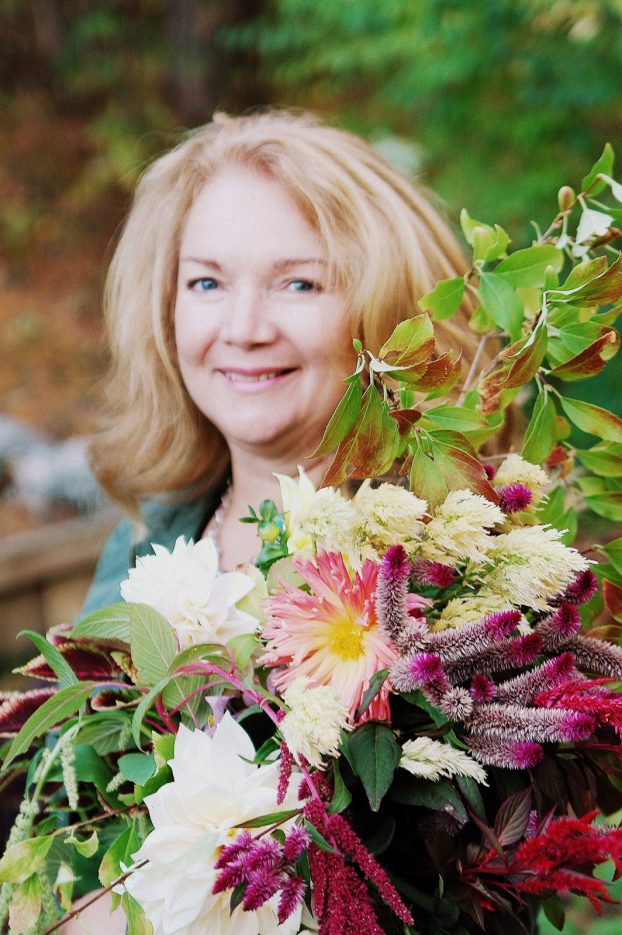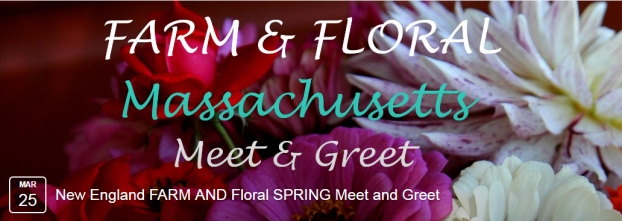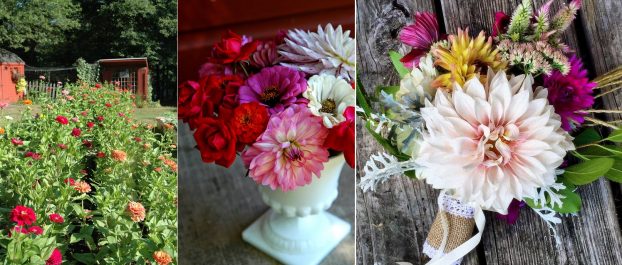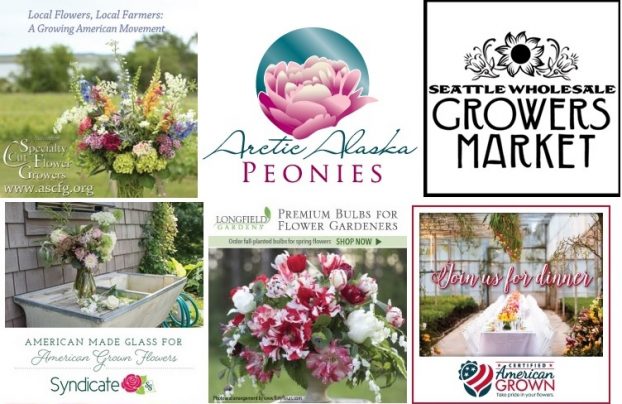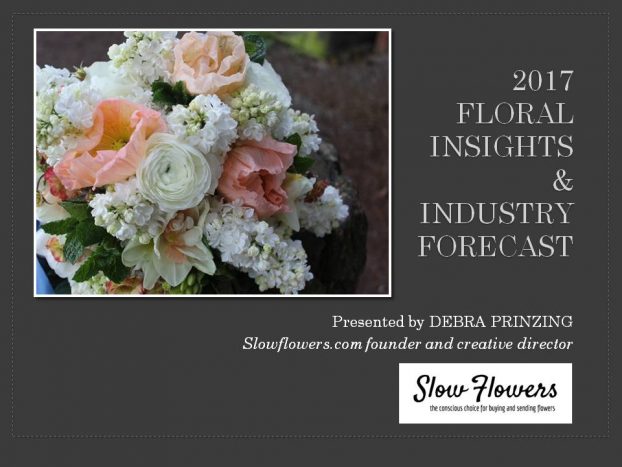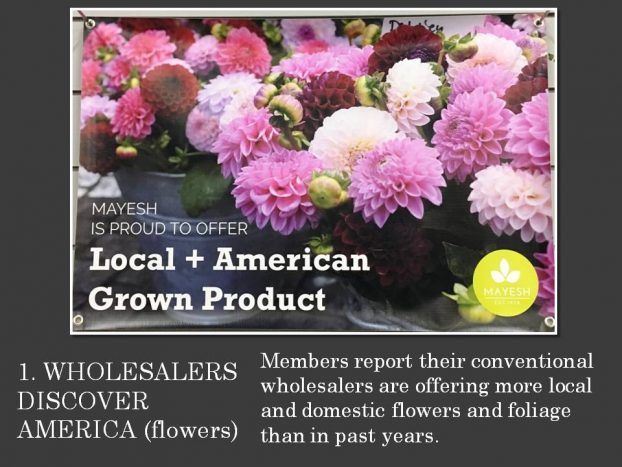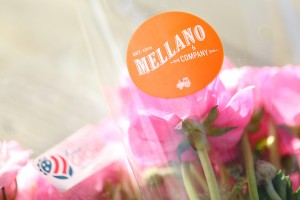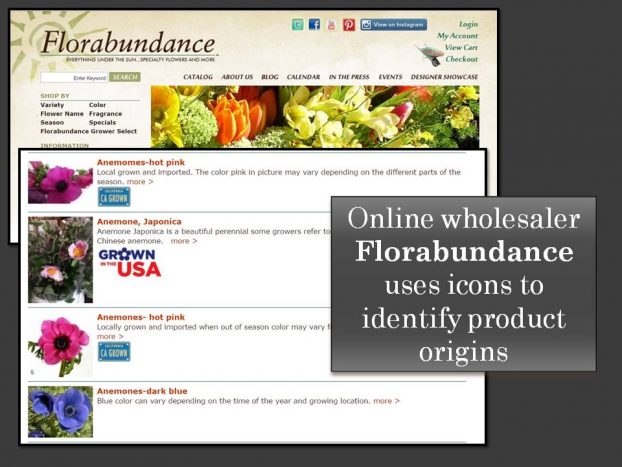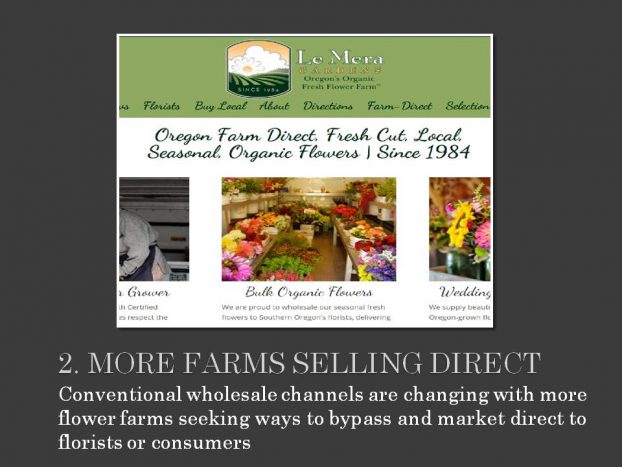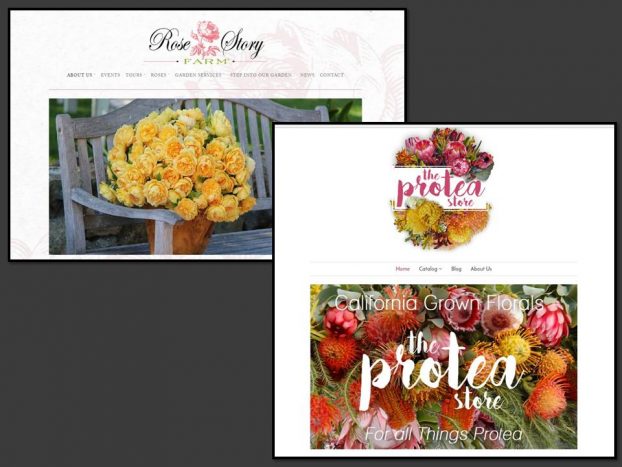Podcast: Play in new window | Download
Subscribe: Apple Podcasts | Podcast Index | | More
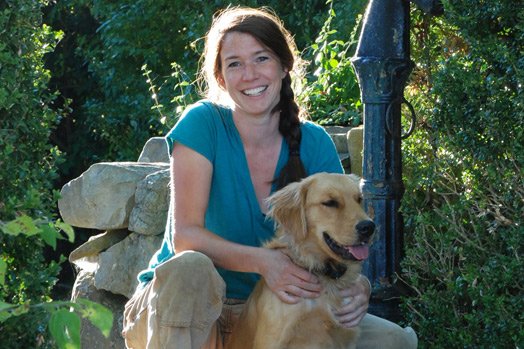
Meet Quill Teal-Sullivan of Meadowburn Farm, this week’s Podcast Guest. Photo: (c) Eric Hsu
Well, we’ve made it through the first week of 2016 and I wonder if you’ve been seeing those social media promises like one that read: “78 days ’til spring,” or whatever the number happens to be at that countdown point.
The New Year causes us to take a deep breath and consider what is essential for our life, our purpose, our creative endeavors. At least that’s how it’s always been for me!
Whether that means taking a baby step or making a radical change, we tend to measure our future choices on or around the first of the New Year. It’s universal. Setting goals and striving to achieve them is what makes us human. I’m excited for 2016 and what it promises in our community, with so many exciting Slow Flowers-inspired gatherings, events, stories and connections on the horizon.
Before I introduce you to this week’s featured guest, I have some newsy items to share.
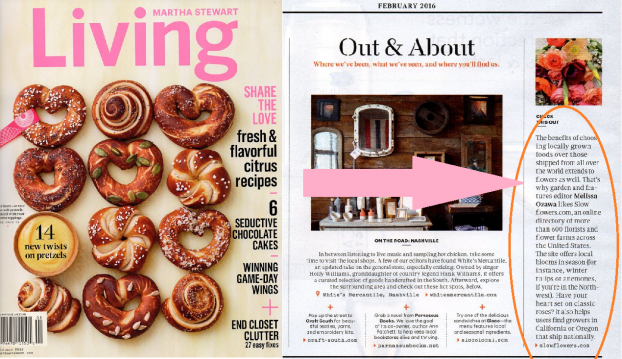
Yay! Check it out!!!
First off: the HUGE news that Martha Stewart Living is featuring Slow Flowers and the slowflowers.com directory in the February 2016 issue – aka the Valentine’s Day issue!
Here’s the text:
“The benefits of choosing locally grown foods over those from all over the world extends to flowers as well. That’s why garden and features editor Melissa Ozawa likes Slowflowers.com, an online directory of more than 600 florists and flower farms across the United States. The site offers local blooms in season (for instance, winter tulips or anemones, if you’re in the Northwest). Have your heart set on classic roses? It also helps users find growers in California and Oregon that ship nationally.”
There you have it! Short and VERY sweet!
Individually, none of us could have earned this type of media attention from a magazine with paid circulation of more than 2 million subscribers, monthly newsstand sales of 115,000 issues and total audience reach of more than 9 million. The demographics of the Martha Stewart reader are in close alignment with your own floral business. You can find the reader statistics on my show notes at Debraprinzing.com, so check them out and feel proud of what we’ve accomplished!
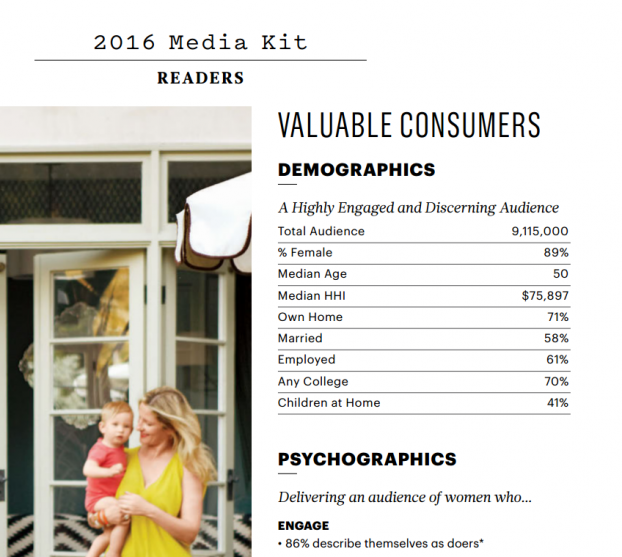
And here’s another mindboggling fact: If we tried to purchase a 1/6-th page advertisement for Slowflowers.com in this issue, it would cost approximately $45,000.
Simply put: those 82 words mean so much to our Slow Flowers community and also represent the incredible value to you as a member of Slowflowers.com.
We can only pursue this type of media coverage if you join the site and support it financially – so keep that in mind as you plan your own business marketing budget in the coming year. For just $200 a year, you can have a significant impact in the success of the Slow Flowers Movement.
When I hear from editors who ask for flower farming and floral design images I often send a call for submissions to members of Slowflowers.com. Recently that paid off in an article by an Associated Press features writer Sarah Wolfe, who wrote about succulents in bridal bouquets.
The work of several Slow Flowers members was featured in her AP wire story that ran in countless daily newspapers across the U.S., including Holly Chapple of Holly Heider Chapple Floral Design, Kelly Sullivan of Botanique and Erika Knowles of Botany 101.
When it came to illustrating the Slowflowers.com piece, Martha Stewart Living‘s art directors reviewed our gallery of choices, including floral images submitted by several Slow Flowers members who responded to my call for artwork.
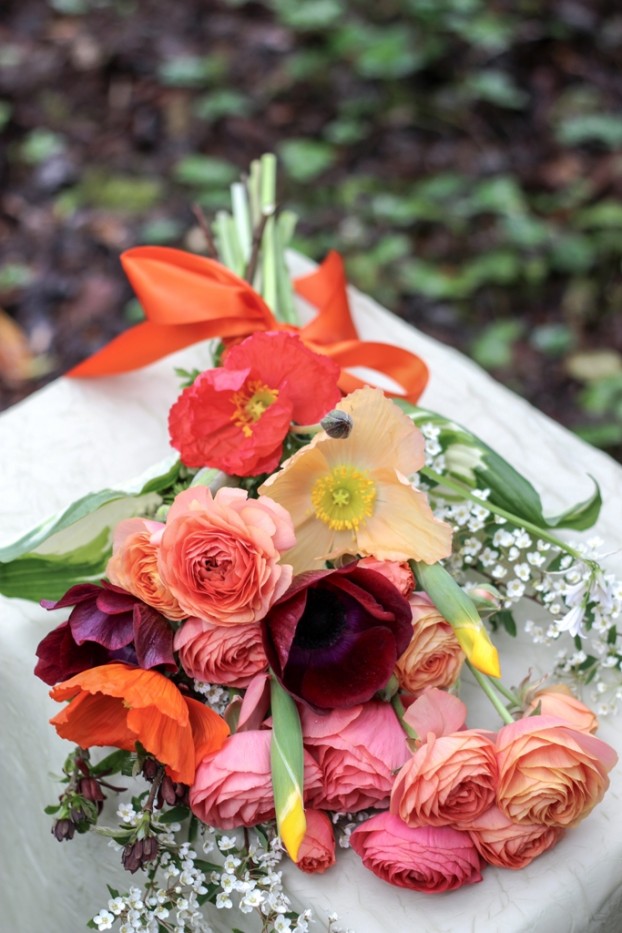
Kathleen Barber of Erika’s Fresh Flowers grew, arranged and photographed these lovely Oregon-grown flowers.
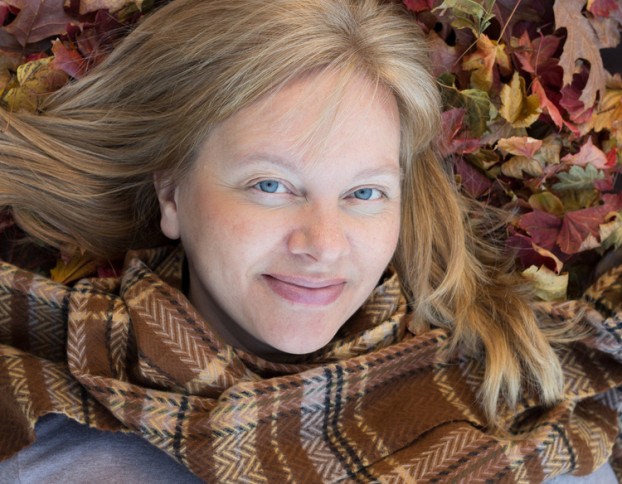
Flower farmer, floral designer, floral photographer, Kathleen Barber
The art directors were drawn to a beautiful, early spring bouquet from Erika’s Fresh Flowers in Warrenton, Oregon.
Erika’s is owned by Kathleen Barber, a gifted flower farmer, floral designer and photographer – all her talents came together for the image you see here.
Our podcast today features a mini-interview I recorded with Kathleen last weekend when I called to congratulate her.
Check out Kathleen’s work at these social places:
Erika’s Fresh Flowers on Facebook
Erika’s Fresh Flowers on Instagram
Kathleen Barber Fine Photography
Enjoy this lovely profile of Kathleen Barber that ran in a local publication last summer. I so appreciate her including the Slow Flowers movement in the story!
And if the image you submitted for consideration for the Martha story wasn’t chosen don’t feel disappointed. I have been asked to share images with another prominent publication for a pre-Valentine’s Day web gallery coming up soon — and you can be sure your floral submissions will be included — I’ll share details once they’re published.
 Next, Amy McGee of the blog Botanical Brouhaha hosted a guest post from me last week in which I shared the Slow Flowers story.
Next, Amy McGee of the blog Botanical Brouhaha hosted a guest post from me last week in which I shared the Slow Flowers story.
I am so appreciative that Amy dedicated her time (and valuable online space on her popular floral blog) to share the Slowflowers.com story with her readers.
One lucky reader won our giveaway of a one-year Premium Listing to promote her floral business.
Congratulations to Eden Frei of The Garden of Eden Floral Design. I’m so pleased that visitors to Slowflowers.com will soon discover This Idaho-based floral design business that also serves the Spokane, Washington area.
Okay, it’s time to introduce you to Quill Teal-Sullivan, horticulturist, flower farmer and floral designer.
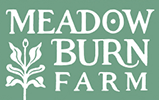 Quill is the garden manager of Meadowburn Farm, a historic garden and working farm located in the Warwick and Vernon Valley, just 90 minutes from NYC.
Quill is the garden manager of Meadowburn Farm, a historic garden and working farm located in the Warwick and Vernon Valley, just 90 minutes from NYC.
There, she is leading preservation efforts and saving the century-old “picking garden” and heirloom floral varieties once grown by the original owner, Helena Rutherfurd Ely (1858-1920), a pioneering figure in American horticulture at the turn of the 20th century and founding member of the Garden Club of America.
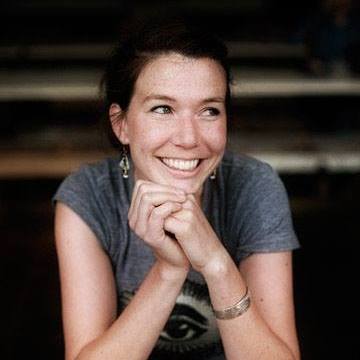
Meet Quill Teal-Sullivan, today’s inspiring guest.
Quill has worked with the owners of Meadowburn Farm for the past six years to preserve their significant historic gardens, which are listed on the National Register of Historic Places and sit at the center of Meadowburn’s 590 acre preserved farm.
As a graduate student in the Longwood Graduate Program, she spent two years researching the garden’s history and possibilities for their preservation, which served as the topic of her master’s thesis.
Today she acts as Meadowburn’s Garden Manager, working day in and day out to bring the 130 year old gardens back to life.
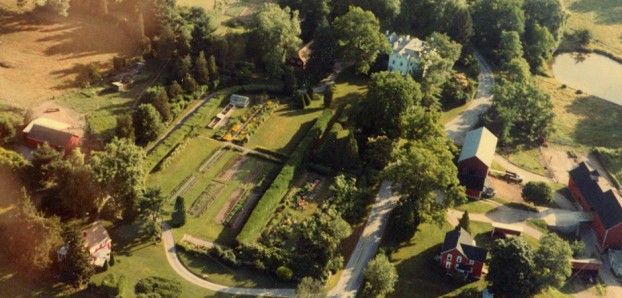
An aerial view of Meadowburn Farm today.
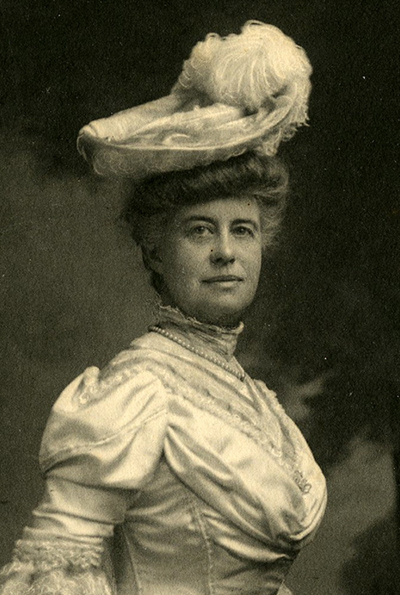
Helena Rutherford Ely
Here’s a bit more about Meadowburn from the beautiful web site:
Helena Rutherfurd Ely built her gardens surrounding her country home Meadowburn over the course of a forty-year period with the help of her loyal gardener, Albert Furman.
Through trial and error she developed the practical hands-on horticultural knowledge that informed and inspired her three widely influential books on hardy gardening.
In her day, Helena was considered one of the premier garden experts in America and her gardens at Meadowburn were recognized as among the finest in the country.
The process of rehabilitating Helena Ely’s gardens—interpreting her vision and philosophy and tending the landscape day-to-day—is a deeply rewarding and very personal journey for Quill, who has been gardening since she was a girl helping in her mother’s garden in the Pacific Northwest.
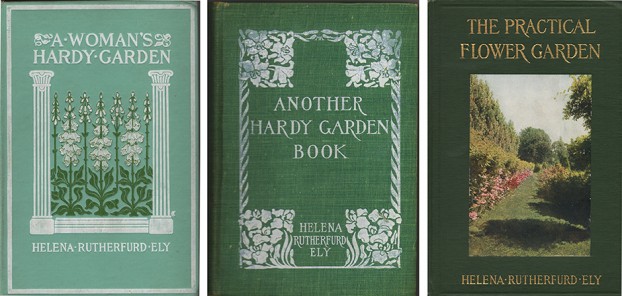
The three influential books written by Helena Rutherfurd Ely in the early 1900s.
In bringing Helena’s story and the important historic gardens at Meadowburn back to life, Quill has begun to find her own voice as a horticulturalist.
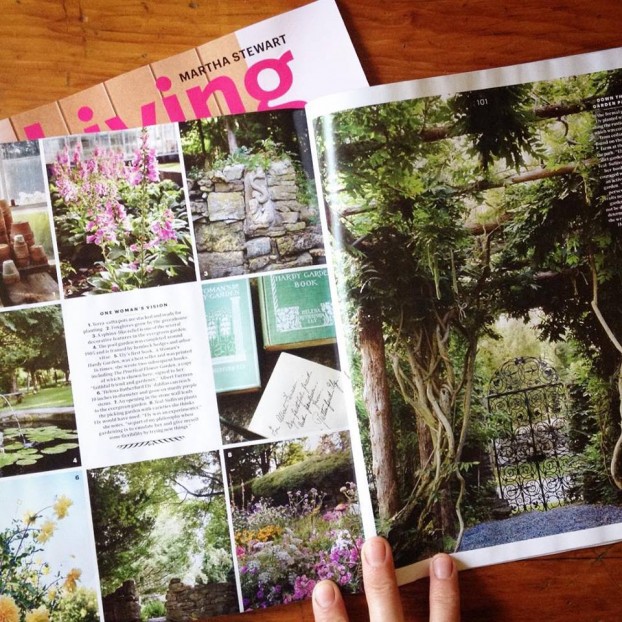
The feature on Meadowburn Farm appeared in Martha Stewart Living September 2015
Her work has been featured in Martha Stewart Living, on my friend Ken Druse’s podcast Real Dirt, and on Green Wedding Shoes.
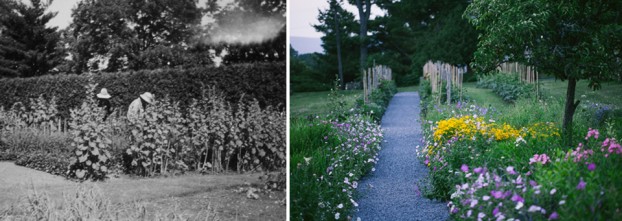
Then and Now, the “Picking Garden” at Meadowburn Farm.
I first met Quill two years ago. We started an email correspondence after Quill made a contribution to the Slowflowers.com Indiegogo campaign and she replied to my thank-you email with this note:
I just saw that you are based in Seattle, which is where I will be for another week and a half before making the trek back East to wake up the gardens at Meadowburn Farm. If you have any free time in the next week, I would love to take you out to coffee and talk about my project at Meadowburn and perhaps get your advice.
In a nut shell, I am managing the restoration of a 6 acre historic garden outside of NYC, and working with the family to set up a business which hopefully will incorporate cut flowers. For 100 years the garden had a 1 acre ‘picking garden’ which filled the house with fresh cut flowers from may until frost. We still have over 500 linear feet of heirloom peonies, and hundreds of heirloom dahlias. I have done quite a bit of research on the possibility of selling our cuts, and have spoken with several other growers such as the folks at Jello Mold. Would you be willing to meet with me? I would be so grateful.
That turned out to be a lovely moment in the midst of my busy Indiegogo campaign when Quill and I met at my neighborhood bakery.
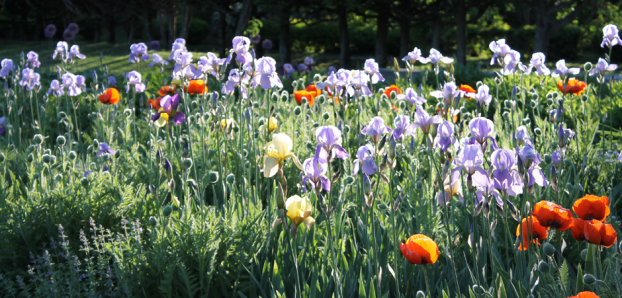
The beautiful and timeless bearded irises at Meadowburn Farm.
She shared the fascinating story of her own journey into horticulture and tempted me with tales of a once famed but nearly forgotten American garden writer whose historic gardens were coming back to life in Quill’s hands. In retrospect, I realize what an opportunity I missed to share her story with the larger community, mainly because that was months before we launched this Podcast.
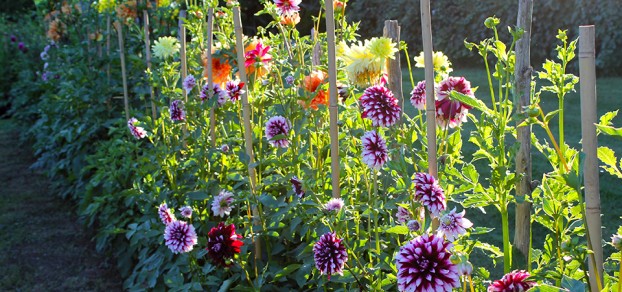
Meadowburn’s famous dahlia garden.
So now I’m making up for that oversight and while Quill was back in the Seattle area over the holidays we sat down to record this interview. Consider this our delayed-by-2-years “do-over” and I hope you enjoy it as much as I did.
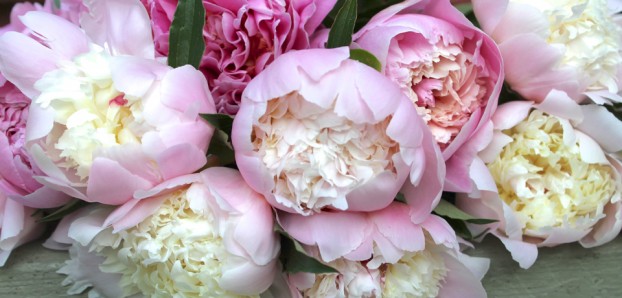
Thank you for joining me today. I hope you’re inspired to check out the Meadowburn Farm web site to learn more about this important living artifact in America’s gardening narrative.
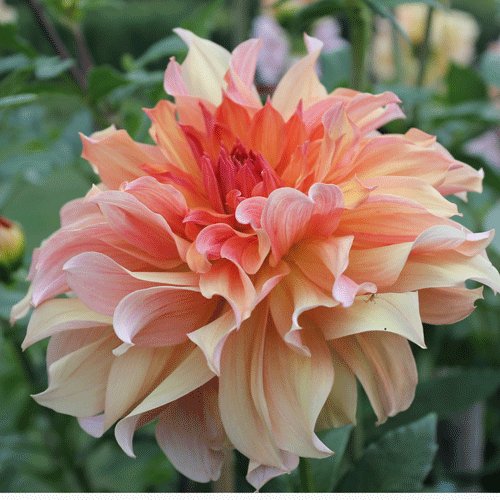
Dahlia ‘Jane Cowl’
Home gardeners and florists alike are now able to order heirloom dahlia tubers that are the offspring of ones grown by Helena Rutherfurd Ely at Meadowburn Farm in the late 1800s and early 1900s.
Meadowburn Farm’s Sustainably grown, fresh cut flowers from the 130-year-old picking garden are available wholesale to florists and markets.
Peonies are available starting in May until July; Dahlias are available July until mid October.
Other flowers often available include: foxglove, lily of the valley, iris, cornflower, ammi, phlox, nicotiana, nigella, and an assortment of other unusual, rare, and unlikely cut flowers and foliage from the gardens, meadows, and woodlands.
Please contact Quill directly for bulk and wholesale orders and to join her weekly wholesale availability list. You can incorporate a bit of American gardening history into your arrangements and support the restoration of an amazing garden while you are at it!. Send your name and e-mail address confirming your interest in cut flower availability to quill@meadowburnfarm.com.
NYC florists can often find our flowers at 28th St Wholesale Flowers in Manhattan.
Follow Meadowburn Farm on Facebook
Follow Meadowburn Farm on Instagram
If you are in the NYC area, you are invited to hear from Quill next Wednesday evening in a lecture she’s giving entitled “Finding my Way.” It takes place from 6 to 7:30 pm on Wednesday, January 20th.
This is the first in Wave Hill’s 2016 Horticultural Lectures, a winter series hosted by the Friends of Horticulture Committee and devoted to the subject of garden making and garden design and the meaning of our interactions with plants and the natural world.
The series of three lectures continues February 17 with garden writer Marta McDowell; and on March 16th with Katherine Tracey, co-owner of Avant Gardens, a nationally known mail-order nursery and garden design/build firm in Massachusetts (and as you all may remember, the instigator of the Slow Flowers Challenge).
All three talks are held at the New York School of Interior Design in Manhattan. and you can purchase the series ticket for $60/$50 Wave Hill Member or student. Individual lecture tickets are: $25/$20 Wave Hill Member or student. Seating is limited, and advanced reservations are recommended, online or by calling 718.549.3200 x216.
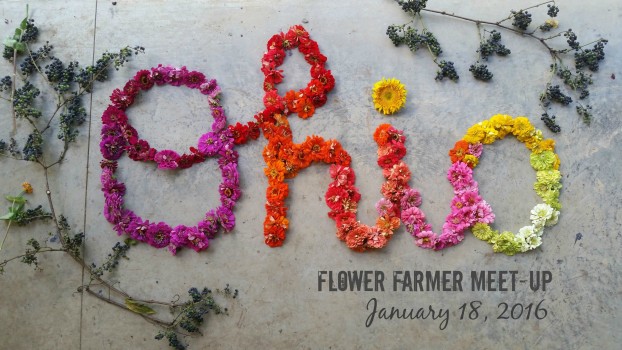 And one more piece of last-minute news: If you haven’t yet heard, next week on January 18th, Ohio flower farmers are gathering in Cinncinati for their second annual “Meet Up.”
And one more piece of last-minute news: If you haven’t yet heard, next week on January 18th, Ohio flower farmers are gathering in Cinncinati for their second annual “Meet Up.”
You can find all the details on Buckeye Blooms’ event page, where Susan Studer King and others have created a info-packed and inspiring program.
The meeting will take place at Sunny Meadows Flower Farm outside Columbus, thanks to hosts Steve and Gretel Adams. I’ll be there in spirit, via a Slow Flowers surprise package we’re donating for a door prize. When I checked in with Susan earlier this week, she said that the registration is nearing capacity – but if you’re interested in attending, they may be able to squeeze in a couple late entrants.
The Slow Flowers Podcast has been downloaded more than 78,000 times by listeners like you. THANK YOU to each and every one of you for downloading, listening, commenting and sharing. It means so much.
Until next week, you’re invited to join me in putting more American grown flowers on the table, one vase at a time. And If you like what you hear, please consider logging onto Itunes and posting a listener review.
The content and opinions expressed here are either mine alone or those of my guests alone, independent of any podcast sponsor or other person, company or organization.
The Slow Flowers Podcast is engineered and edited by Andrew Wheatley and Hannah Holtgeerts. Learn more about their work at shellandtree.com.
